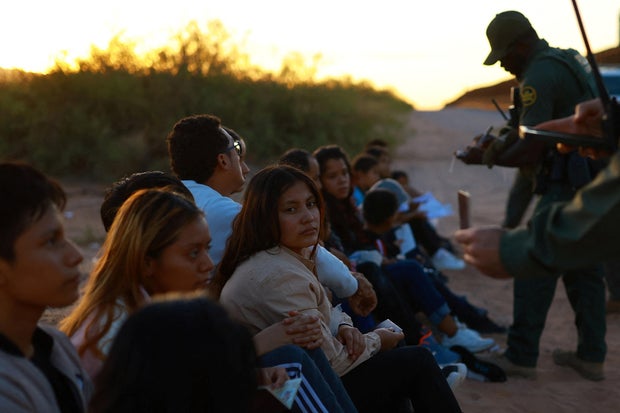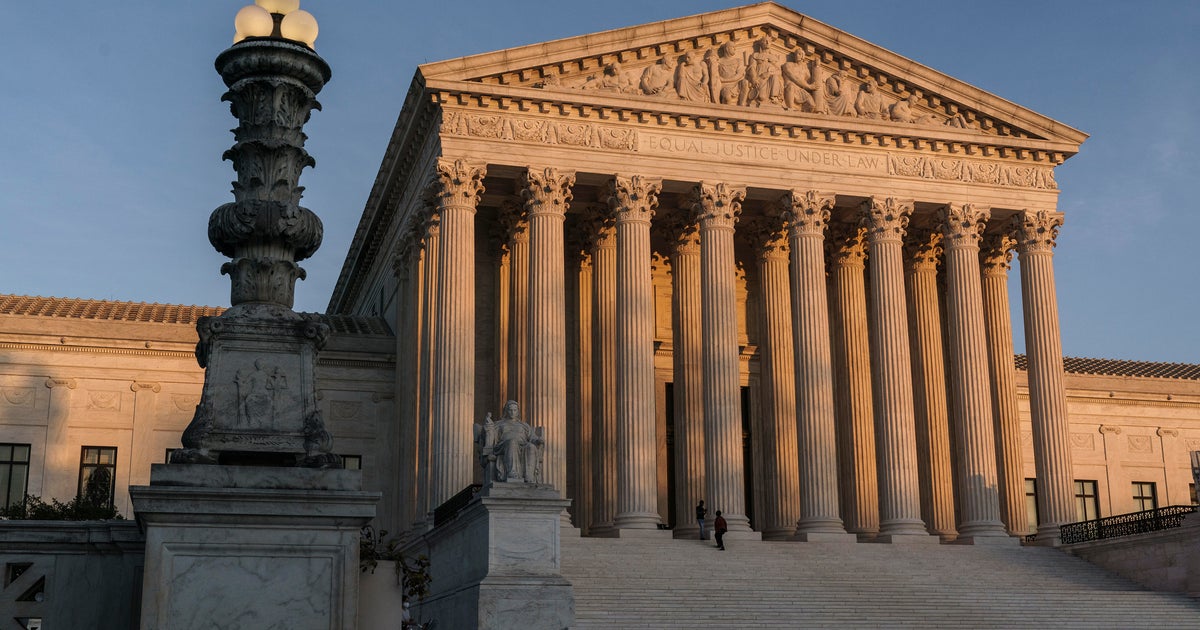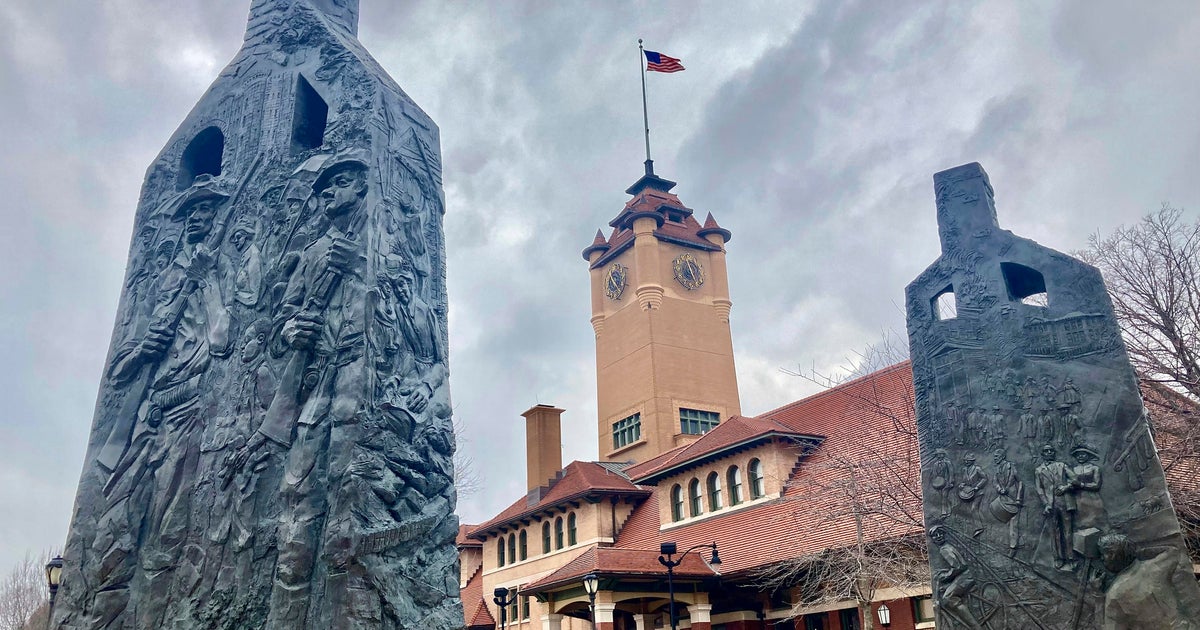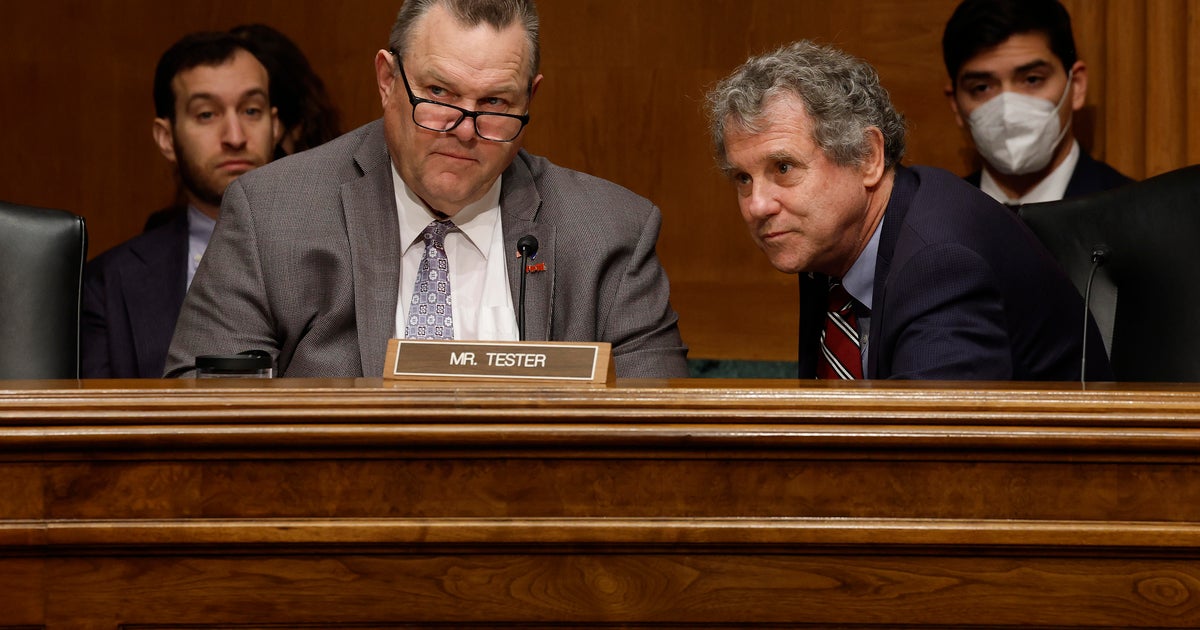Under Biden border move, fewer migrants are released into the U.S. or screened for asylum
President Biden's move to partially suspend asylum processing at the southern border has led to a dramatic drop in the number of migrants released into the U.S. interior or screened for humanitarian protection, official government statistics show.
In early June, Mr. Biden, citing the record levels of illegal border crossings over the past years, invoked a sweeping executive authority to disqualify most migrants from U.S. asylum, making it easier for immigration officials to deport those entering the country illegally.
A months-long downward trend in unauthorized border crossings accelerated after Mr. Biden's order took effect. In July, the number of migrants illegally crossing the southern border between official entry points plummeted to 56,400, the lowest level in nearly 4 years, according to federal statistics. U.S. officials have also attributed the marked decrease to rising summer temperatures and a crackdown by Mexican officials on migrants trekking north.
Newly-released government figures show Mr. Biden's asylum crackdown, the most restrictive by a Democratic president, has ushered in a seismic shift in how migrants are processed at the U.S.-Mexico border.
Migrant releases plunge
One main change has been a steep decline in the number of migrants being released by Border Patrol, a practice that U.S. officials have perceived as a "pull factor" for migration, as those who are released can usually stay in the U.S. for years, regardless of the validity of their asylum claims, because the immigration courts face a backlog of millions of cases.
In July, Border Patrol released 12,000 migrants with notices to appear in immigration court, down from 28,000 in June and 62,000 in May, before Mr. Biden's asylum changes, according to Customs and Border Protection data. In December 2023, during a record-breaking spike in migration, Border Patrol released 192,000 migrants with court notices.
The sharp decrease in releases has coincided with a significant jump in the percentage of migrants placed in "expedited removal" proceedings. Those proceedings allow officials to quickly deport recent border crossers who don't claim asylum or who fail asylum interviews.
In the months before Mr. Biden's move to severely restrict asylum, only a quarter or less of all migrants apprehended by Border Patrol were placed in expedited removal proceedings, mainly because the government did not have the resources and manpower to detain and screen everyone crossing into the U.S. illegally.
In July, nearly 28,000, or roughly 50%, of the 56,000 migrants apprehended by Border Patrol that month were processed for expedited removal, agency figures show. That's up from 43% in June and 25% in May, according to the data.
More than 100,000 migrants have been deported or returned to Mexico or their home countries since Mr. Biden's partial ban on asylum claims took effect, according to Department of Homeland Security data.
Access to asylum is sharply limited
Under U.S. and international law, asylum is designed to offer legal protection to foreigners who are fleeing persecution based on certain grounds, such as their political views, religion or membership in a social group. Poverty is not a ground for asylum.
If migrants placed in expedited removal proceedings say they fear being persecuted if deported, they must be referred to undergo a so-called "credible fear" screening with an asylum officer. If they pass these interviews, migrants are allowed to seek asylum in front of an immigration judge, and if they fail, they can be generally deported.
Since Mr. Biden's partial ban on asylum, much fewer migrants are being screened by U.S. asylum officers. That's because in addition to making most migrants ineligible for asylum, the rules that implemented Mr. Biden's order in June enacted another major change.
Those rules instructed immigration officials to stop asking migrants whether they fear being harmed before deporting them, a question they were supposed to ask before Mr. Biden's order. Under the new process, only migrants who affirmatively express fear of being harmed are referred to the asylum screenings.
Following the change, the percentage of migrants processed under expedited removal who were recorded manifesting fear of being persecuted has plunged to 24%, down from the 55% average before Mr. Biden's asylum crackdown, according to a federal court declaration on Friday by Assistant Homeland Security Secretary for Border and Immigration Policy Royce Murray.
Royce Murray federal court declaration by CBSNews.com on Scribd
In the four months before Mr. Biden's order, U.S. asylum officers received between 17,000 and 20,000 referrals to screen migrants per month. That number dropped to 7,100 in June and 1,900 in July, U.S. Citizenship and Immigration Services figures show.
Even if migrants receive an asylum officer interview, the new rules make the screenings harder to pass, as migrants are generally only screened for more limited forms of humanitarian protection that, unlike asylum, do not offer beneficiaries a path to permanent legal status.
Officials warn of influx if order is lifted
Mr. Biden's asylum order contains some exemptions. For example, it does not apply to unaccompanied children, who have to be sent to government-run shelters under U.S. law, or migrants who get an appointment, via a phone app, to be processed at an official port of entry.
In July, the U.S. processed more than 38,000 migrants who received appointments through that app, known as CBP One, federal data shows. After security vetting, these migrants are generally allowed into the U.S. to apply for work permits, while courts review their cases.
The Biden administration's asylum crackdown, by its own terms, would stop if the seven-day average of daily illegal crossings dips to 1,500. While the average has gotten close to that threshold, border crossings appeared to have plateaued in August, internal federal figures show.
Mr. Biden's executive action is also at risk of being struck down in federal court. The American Civil Liberties Union and other immigrant rights groups have said in a lawsuit that the rule violates U.S. asylum law, arguing it mirrors a Trump-era policy that courts declared illegal.
In a legal memo Friday opposing the ACLU's lawsuit, the Justice Department warned that internal projections point to daily illegal border crossings spiking to between 3,400 and 6,900 in the coming months if the asylum crackdown is blocked, compared to the 1,800 average in July.
Remarkably, Texas, which has filed lawsuits against virtually every major Biden administration immigration policy, is trying to intervene in the ACLU case in defense of Mr. Biden's asylum crackdown, calling his action "reasonable" in a legal memo on Friday.
On Friday, White House spokesperson Angelo Fernandez Hernandez credited the president's "decisive actions" for the marked drop in migrant crossings.
But migrant rights advocates say Mr. Biden's policy has had dire consequences for migrants. Christina Asencio, director of research at the advocacy group Human Rights First, said she has documented cases of asylum-seekers being deported from the U.S. without a chance to plead their cases.
"I would ask, what does working mean? Does working mean summarily removing someone without access to due process, without the access to the statutorily required fear screening? Does working mean trapping them in Mexico?" Asencio asked.





